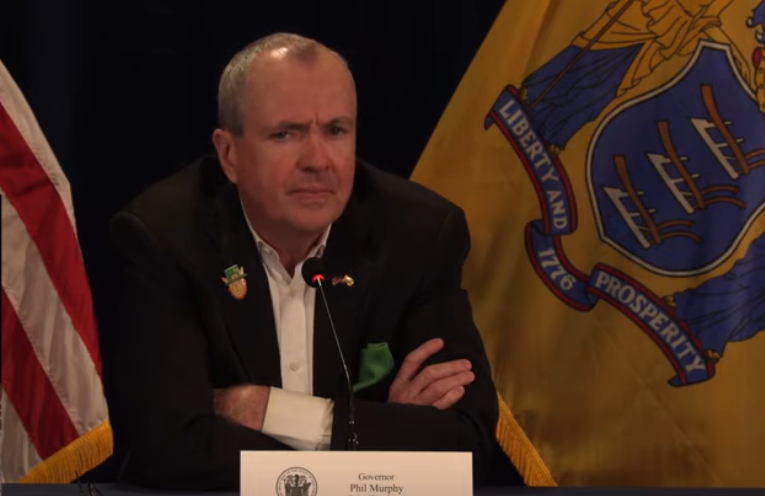A War

The raw numbers at Phil Murphy's daily briefings are depressing.
Today, he reported 91 more deaths and an additional 3,649 cases of the coronavirus.
So it was not a real surprise that the governor sought solace in philosophy and literature.
He talked about "social distancing," but citing another interpretation, called it "social solidarity."
That spin - if you excuse some political verbiage - allowed the governor to suggest that by staying apart, New Jerseyans are coming together.
That, he admitted, was a bit of "perverse reality," but then again, it seemed understandable under the circumstances.
There remain problem areas. For the second night this week, police in Newark issued more than 100 summonses Tuesday to people and businesses for violating social distancing and stay-at-home orders. And there was another gathering in Lakewood - this time an engagement party - that police broke up.
But as Murphy said, the "overwhelming majority" of the state's 9 million people are using common sense, following the law and trying to fight COVID-19.
So, people watching today likely understood what the governor meant when he said that staying apart is bringing New Jersey together.
Murphy - like many others around the country - is calling the fight against the virus a "war."
And today, the governor riffed a bit on a more traditional war - World War II.
This brought him around to Winston Churchill and the latest book by Erik Larson - "The Splendid and the Vile."
Some may know Larson's works. If you don't, he writes non-fiction books that read like novels. They're colorful and engaging; not dry and dense.
The governor cited another one of Larson's books - "In the Garden of Beasts," which was about the U.S. ambassador to Germany during the rise of Nazism. Murphy, of course, also was ambassador to Germany, although in far less troubling times.
Larson's latest work focuses on one year - May, 1940 to May, 1941- and how Churchill led his country through truly terrible times.
No, the times today are really not as terrible as the bombing of London, but the governor saw parallels in coping with an unseen, but deadly, enemy.
Sure, any comparison of himself to Churchill may have been a tad presumptuous, but Murphy's overall point was that in the end "We won."
He meant WWII and he expressed determination to win the current war as well.
Today's briefing also presented a much, more basic example of how life has changed.
And it came from Patrick Callahan, the head of the state police.
He spoke of having "not an easy phone call" last night with his daughter. Because of social distancing and related orders, father told daughter that her planned wedding in June was being postponed.
Callahan said that's a big deal; few would disagree.





